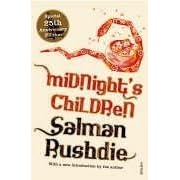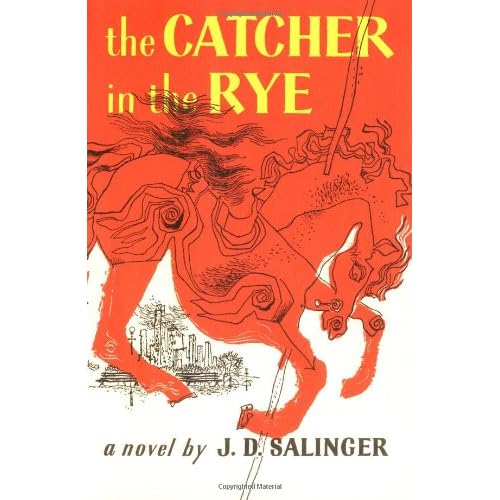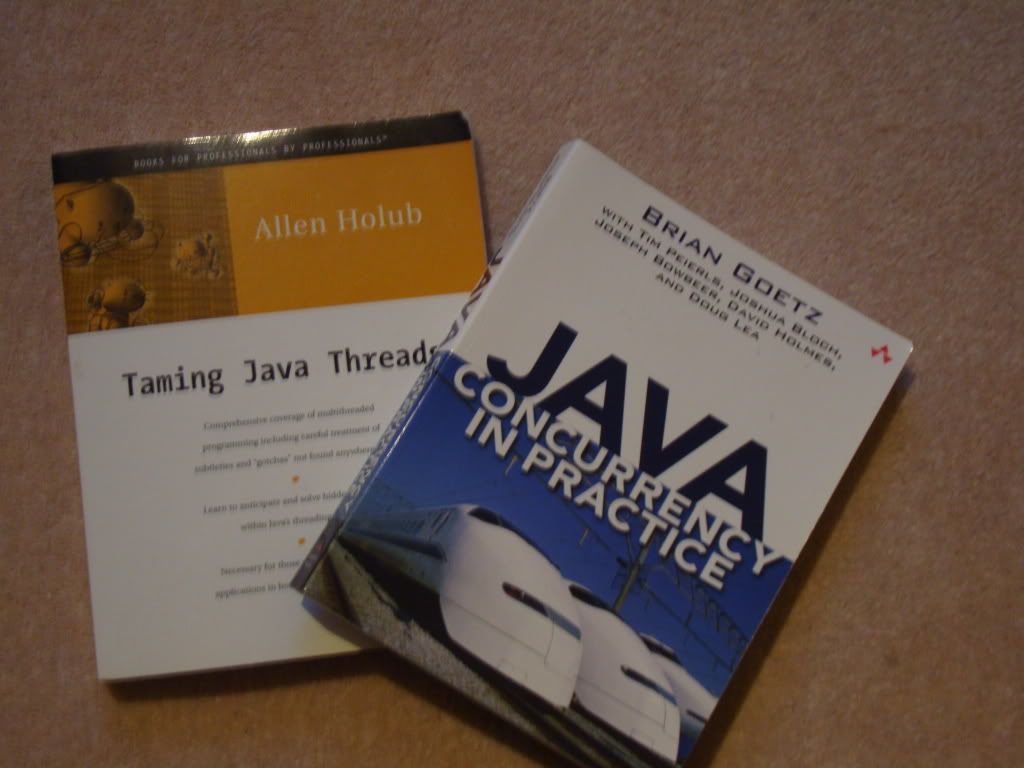 The winner of the Booker Prize in 1981, the Booker of Bookers in 1993, and the Best of the Booker in 2008, this book is much-acclaimed and highly recommended. The New York Times claims:
The winner of the Booker Prize in 1981, the Booker of Bookers in 1993, and the Best of the Booker in 2008, this book is much-acclaimed and highly recommended. The New York Times claims:
The literary map of India has to be redrawn... Midnight's Children sounds like a continent finding its voice.
And, I can't even refute that for argument's sake, because this epic novel explores the history of Indian independence, of the Indo-China war, the Emergency, blackouts, the Partition, the emergence of Bangladesh, and essentially, it's a history of the Indian sub-continent from the time of its birth. But, what makes this novel truly historical is its protagonist: Saleem Sinai, born exactly at the stroke of the midnight hour, when the world slept and, India awoke to life and freedom, and the other 'midnight children' - children born between midnight and 1 am on the day of India's independence. One thousand and one of them. These children are all special, gifted. While one can travel through time, another can travel via any reflective surface. There's a witch, and there's a girl so beautiful that her beauty blinds anyone who sees her face. Someone else can changes sexes at will. But, of course, the most potent of gifts comes to Saleem, born exactly at midnight - the gift of telepathy, as well as, being able to 'conference' in all the midnight's children, and allowing them to communicate through him. And his nemesis, Shiva, who ironically enough, is born in the same hospital at exactly the same time. While Saleem was the offspring of a Hindu street-singer, Shiva was born into a affluent Kashmiri family. However, typically, a nurse made the switch, thereby changing the destiny of the two most potent Midnight Children, who would be mortal enemies until the end. While Saleem's birth was celebrated, with a letter from the then Prime Minister, saying his life would always be entwined with his country's, Shiva's birth was not celebrated nation-wide!
So, who were the Midnight's Children? What did they signify?
Reality can have metaphorical content; that does not make it less real. A thousand and one children were born; there were a thousand and one possibilities which had never been present in one place at one time before; and there were a thousand and one dead ends. Midnight's children can be made to represent many things, according to your point of view; they can be seen as the last throw of everything antiquated and retrogressive in our myth-ridden nation, whose defeat was entirely desirable in the context of a modernizing, twentieth-century economy; or as the true hope of freedom, which is now forever extinguished; but what they must not become is the bizarre creation of a rambling diseased mind. No: Illness is neither here nor there.
However, this book does not trace the life of all one thousand and one children, or the five hundred and eighty one that survived. In fact it focuses solely on Saleem, the narrator, and the thirty-one years of his life. And the life of his parents and grandparents. An astrologer predicted Saleem's fortunes (or, shall we say misfortunes, for he was both, the master and the victim of his time) before his birth:
A son... such a son! A son, who will never be older than his motherland - neither older nor younger. ... There will be two heads - but you shall only see one - there will be knees and a nose, a nose and knees. Newspaper praises him, two mothers raise him! Bicyclists love him - but crowds will shove him. Sisters will weep; cobra will creep... Washing will hide him - voices will guide him! Friends mutilate him - blood will betray him! Spittoons will brain him - doctors will drain him - jungle will claim him - wizards reclaim him! Soldiers will try him, tyrants will fry him... He will have sons without having sons. He will be old before he is old! And he will die before he is dead!
Sounds complicated, right? The above pretty much sums up the story. If you think it's confusing, it's because it is. A tryst with destiny, a dance with fate and he seems singly responsible for a multitude of historical events in India, post-independence: be it the emergence of Gujarat and Maharashtra, or the Indo-Pak wars, the politics, or even the Emergency period!
You would think that the Midnight's Children would unite, to do some good, to do their nation proud. But, India at the time, seemed to be in a chaotic state of class differences, where people of the various castes did not interact with one another. And, there was a bigger problem: Saleem was their only mode of communication, and once he discovered how he and Shive had swapped destinies, he was reluctant to open the Midnight's Children network again, lest his arch-enemy discovered how his affluent birth had been denied. So, the children lived in denial, hiding their gifts, not interacting with one another, and thereby letting the nation succumb to an apparent greater evil, which would be the end of the Children.
Yes, it's a complex plot, and it's a difficult read. Rushdie's writing is convoluted, and he has literally created his own language and grammar rules. From not using commas, to using words like 'nearlynine' and 'almosteight'. Towards the latter half of the book, there are chunks where in the same paragraph, he refers to himself in both, first and third, person, making the book more difficult to read than it should be. But then again, with my past experiences with Rushdie, this isn't altogether surprising.
The book's interesting, gripping, and colorful. It shows you a historical India, tainted with its new-found independence, and corruption. It gives you an insight into the culture of the country, and the lifestyle. The fascination with Europeans and Americans, and the emphasis on 'black' being unattractive.
However, what I really loved about the book was the role of Padma - a role so effortlessly and artistically worked in, that it actually helped me through the first couple of hundred pages. So, who is she? Padma is physically present as Saleem is writing his story. Through the book, we are allowed a glimpse into the psyche and emotions of Saleem, as he narrates his story, battling his past, and simultaneously attempting to adhere to the truth as much as possible. However, Saleem is prone to digressing, and often, initially, I found that I wasn't quite sure where the book was going. And, that's where Padma steps in: she calls him on it.
But here is Padma at my elbow, bullying me back into the world of linear narrative, the universe of what happened next: 'At this rate,' Padma complains, 'you'll be two hundred years old before you manage to tell about your birth.'
or,
You better get a move on or you'll die before you get yourself born.
Honestly, at the time I was reading this portion, I was hoping the narrator would bring his meanderings to a close, and move on with the story. What's amazing is, this allows both: digressions, and a gentle push back into the story line.
This is an amazing work of literature, and I fully think it deserves to win both, the Booker of Bookers and the Best of the Booker. Volume, story, historical value and literary significance - all in abundance.
Overall rating: 9/10.

 Background:
Background: Shortlisted for the Booker Prize 2008, and winner of the Costa Award 2008, The Secret Scripture explores the lives of both, Dr. Grene (a psychiatrist) and his centerian patient, Roseanne, as both characters reflect on their life from their youngest days, to where are they at this point in time.
Shortlisted for the Booker Prize 2008, and winner of the Costa Award 2008, The Secret Scripture explores the lives of both, Dr. Grene (a psychiatrist) and his centerian patient, Roseanne, as both characters reflect on their life from their youngest days, to where are they at this point in time. So, I'm taking ages with the Weekly Geeks'
So, I'm taking ages with the Weekly Geeks'  I'm not a chick-lit fan at all. The last time I read
I'm not a chick-lit fan at all. The last time I read 
 Yes, I did enjoy the book, and I think it's definitely worth a read. It provides the reader with an insight into life in the South in those times: oppressed women, abusive men, judgmental society. The story is told through the eyes of Celie, a girl of 14 (when the book begins), who has suffered a fair bit; being raped by the man she calls 'father', being forced to marry a man significantly older than herself who is in love with a famous blues singer (Shug Avery), and being separated from her sister, Nettie. It's the exploration of these subjects that make the book a little difficult to read, as you can't help but feel your heart go out to poor Celie, who writes her story to 'God', as she has been told never to tell about her abuse to another person.
Yes, I did enjoy the book, and I think it's definitely worth a read. It provides the reader with an insight into life in the South in those times: oppressed women, abusive men, judgmental society. The story is told through the eyes of Celie, a girl of 14 (when the book begins), who has suffered a fair bit; being raped by the man she calls 'father', being forced to marry a man significantly older than herself who is in love with a famous blues singer (Shug Avery), and being separated from her sister, Nettie. It's the exploration of these subjects that make the book a little difficult to read, as you can't help but feel your heart go out to poor Celie, who writes her story to 'God', as she has been told never to tell about her abuse to another person.


 Those are the books I have at hand right now, at home. While some of them are purely for reference, I do tend to read some of them, just to get a better understanding of the best coding practices. I absolutely hate EJB - and if you've ever had the traumatic experience of dealing with them, you'll probably agree with me!
Those are the books I have at hand right now, at home. While some of them are purely for reference, I do tend to read some of them, just to get a better understanding of the best coding practices. I absolutely hate EJB - and if you've ever had the traumatic experience of dealing with them, you'll probably agree with me!

 What remains one of my favorite things, is Spring! I've done a couple of really cool projects using the Spring framework, and I bought a book on it, just to see how it fits together. Now that I'm relatively comfortable with Spring, it's time to move on to Hibernate?
What remains one of my favorite things, is Spring! I've done a couple of really cool projects using the Spring framework, and I bought a book on it, just to see how it fits together. Now that I'm relatively comfortable with Spring, it's time to move on to Hibernate? The winner of the Booker Prize in 1981, the Booker of Bookers in 1993, and the Best of the Booker in 2008, this book is much-acclaimed and highly recommended. The
The winner of the Booker Prize in 1981, the Booker of Bookers in 1993, and the Best of the Booker in 2008, this book is much-acclaimed and highly recommended. The